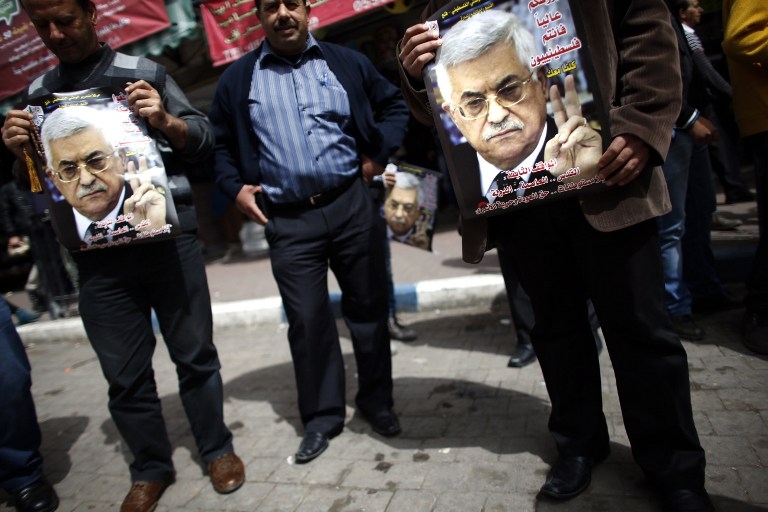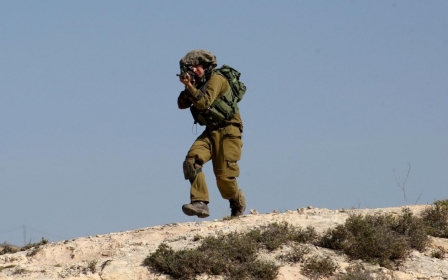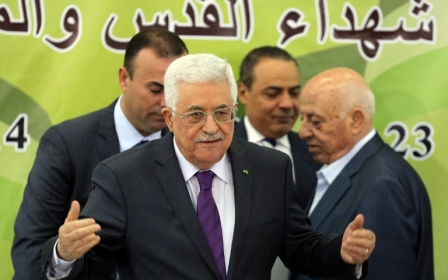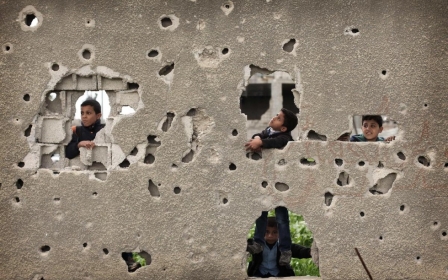Invalidating Israel's claims of Palestinian incitement

The tenth anniversary of Yasser Arafat’s murder was marked with a commemoration tarnished by the increasing compromise articulated by Palestinian Authority President Mahmoud Abbas. Recollections of Arafat as a revolutionary leader were mingled with the usual rhetoric of securing a “peace agreement” with Israel - effectively enhancing the spiralling degradation of Palestine by its subjugated leadership.
According to the Times of Israel, Abbas said that a lack of peace agreement “will worsen the situation in the already inflamed areas of the region". Abbas also declared that he will seek Palestinian statehood at the UN Security Council, hailed the symbolic recognition recently granted to Palestine by several European countries and defended the right of return for refugees. The assertions come following the usual claims from Israeli Prime Minister Benjamin Netanyahu, Foreign Minister Avigdor Lieberman and Economy Minister Naftali Bennett that Abbas is engaging in incitement discourse - a claim contrary to the political subjugation in which the PA finds itself.
The latest Israeli violations at Al-Aqsa and settlement expansion in Jerusalem, which prompted Palestinians to defend and resist the incursions, were manipulated by Netanyahu to extend the incitement rhetoric allegedly perpetrated by Abbas. As reported on Ynet News, Netanyahu declared Abbas “irresponsible” and guilty of exacerbating tension. “Instead of telling the truth, he is spreading lies as if we are attempting to change the status of holy sites. Instead of educating his people on peace, he is teaching them terror.”
Israel’s settlement expansion in East Jerusalem has been ineffectively criticised by both the US and the EU. For his part, Lieberman dismissed objections to the forthcoming construction as settlement activity. “We will never accept the definition of building in Jewish neighbourhoods of East Jerusalem as settlement activity," he said. While, as on other occasions, statements have been issued alleging that settlement construction will exacerbate relations between the EU and Israel, the manipulation of settlement expansion as an isolated phenomenon detached from the ramifications of settler violence against Palestinians is, as always, neglected.
While claims of Palestinian leadership incitement continue to form the basis of Israeli rhetoric - particularly within the context of colonial expansion evidence - there is nothing substantive to support this fabricated framework. One of the latest rhetorical outbursts comes from Israeli Ambassador to the UN Ron Prosor whose letter to the UN Security Council blames Abbas of terror incitement, while also accusing the international community of complacency. According to Prosor, “Complacency breeds catastrophe and the international community has been nothing but complacent as Israelis are targeted by terrorists day after day.” International complacency benefits Israel since it is not the recipient, but a collaborator in ensuring the continuous misrepresentation of Palestinians. This is particularly true at the UN, the platform which Israel used relentlessly ahead of Operation Protective Edge to assert its alleged concern over the deaths of the three Israeli settlers that served as a premise for Israel’s colonial massacre.
Supported by imperialism, Israel has persisted in its manipulation of Palestinian armed resistance into “terrorism”. However, Palestinian resistance, through diplomatic political concessions, has become a fragmented endeavour. Palestinian leaders have navigated a political terrain from armed resistance to complicity in maintaining Zionist settler-colonialism in Palestine. Hence, claims by Israeli leaders are rendered irrelevant. A look at the charters of Palestinian political factions prior to the scramble for legitimacy and recognition shows assertiveness with regard to the struggle for liberation, as well as the importance of imparting revolutionary consciousness. The latter was achieved by a clear definition of the systematic terror that Palestinians faced as an extension of the imperialist endeavour for domination, in which Israeli is complicit.
Recognition of ideological and practical strategy in relation to mass consciousness was disrupted through the gradual negation and oblivion of Palestinian history through a process of subjugation in relation to the settler-colonial expansion. With liberation being gradually eliminated from discourse to pave the way for political concessions that favoured recognition of Israel, the alienation of Palestinian leadership from the people it claimed to represent contributed to the fragmentation of resistance, both in ideology and practice. Repudiating Palestinian history, a process crucial to Zionist colonial expansion in Palestine, enhanced a wider process of invalidating Palestinian narratives that was adopted internationally through the UN.
Rather than articulate Palestinian demands through the people, the UN assimilated the hegemonic narrative in its discourse and resolutions; the result being a constant interpretation of Palestinian history and reality through the perspective and demands of the oppressors. The process of displacing Palestinian memory at an international level has served to retain the insistence upon “peace,” rather than liberation from colonial rule, as well as the purpose of safeguarding the UN’s existence and survival through its support of actions contrary to international law.
Acquiescence to US and Israeli demands, including the insistence upon the two-state conspiracy, security cooperation and the fundamental question of the Palestinian right of return - ridiculed on occasions by Abbas through negation, have all contributed to the deterioration of Palestinian liberation. However, Israel’s propaganda regarding alleged incitement promulgated by Abbas - a regular assertion, in particular, during Palestinian resistance against colonial violence - relies upon both misrepresentation of Palestinian resistance as terror, as well as the elimination of context from Abbas’s discourse which is, at all times, indicative of complicity and collaboration with Zionist demands.
While a lot of emphasis has been placed upon recent symbolic recognition of Palestine by the media, prompting criticism by Israel, the gesture itself is in accordance with negotiations regarding the two-state usurpation – a compromise that Palestinian leaders have acquiesced to and which Abbas continues to cite as a peaceful option, having completely repudiated the necessity of resistance even during Israel’s massacre of Gaza. Contrary to Israeli claims of incitement, Abbas is fulfilling a role from within the colonised - that of granting further concessions that allow Israel to move closer to its concept of “Greater Israel” – an expansion of both territory and ideology that enhances both the obliteration of Palestine as well as imperialist demands in the Middle East.
Middle East Eye propose une couverture et une analyse indépendantes et incomparables du Moyen-Orient, de l’Afrique du Nord et d’autres régions du monde. Pour en savoir plus sur la reprise de ce contenu et les frais qui s’appliquent, veuillez remplir ce formulaire [en anglais]. Pour en savoir plus sur MEE, cliquez ici [en anglais].





